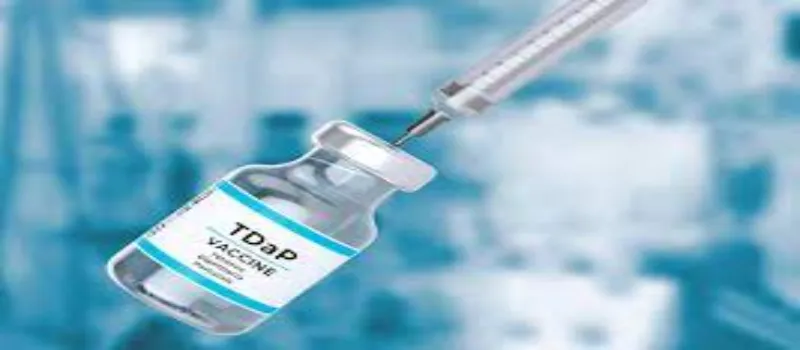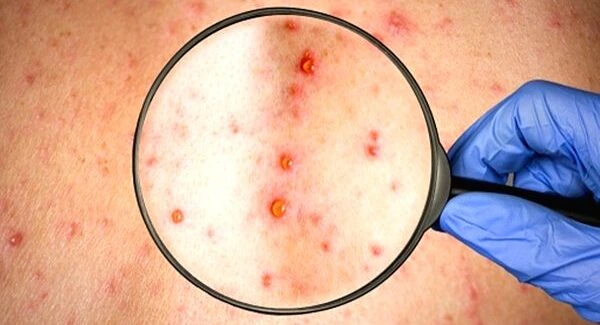What is Tetanus, Symptoms, Injection and Vaccines

Posted Date: April 4th, 2023
Tetanus is also called lockjaw which is a bacterial infection and it is caused by the bacterium clostridium tetani. It is very serious problem in which bacteria enter the body through a wound or a cut. Once bacteria enter the body it produce toxin which affects the nervous system of the body and causes muscles stiffness. It starts with the neck and jaw muscles and after that it spreading to the other muscles and body parts. It is life threatening and shows the symptoms like difficulty in swallowing breathing and lastly ultimate death.
Tetanus Injection And Vaccines
A tetanus injection is a vaccine that helps to protect against tetanus, a serious bacterial infection that causes nervous system and muscles contraction, mainly in the jaw and neck. Tetanus injection means tetanus vaccine which works by introducing small amount of tetanus bacteria into the body which restore the immune system to produce antibodies against the bacteria. These antibodies stay in the body and help to provide protection against the tetanus and future infection by tetanus.
Generally, tetanus injection or vaccine is given in the part and it is a combination of vaccine which is called DTap vaccine which also protects diphtheria and whooping cough. To maintain immunity DTap vaccine recommended to all the children from the starting age of 2 months and a booster dose recommended every 10 years for adults.
There are two types of vaccines DTap and Tdap. Both vaccines protects against the diphtheria, tetanus and pertussis.
Dtap :
DTap stands for diphtheria, tetanus and pertussis vaccine. This vaccine given to the children under the age of 7 in the series of five shots. Mostly in the ages of 2 months, 4 months, 6 months, 15 to 18 months, and 4-6 years.
TDap:
TDap stands for tetanus, diphtheria, pertussis vaccine. This vaccine given to the children more than 7 years and the adults who have not previously received it. It is a single booster dose with additional booster shots which recommended by the doctor in every 10 years.
Both the vaccines are the combination of inactive forms of diphtheria and tetanus toxins with the components of pertussis bacteria and the antibodies which produce by these components protect the individuals against the bacteria.
If someone experiencing any wound or injury which has potential to lead the tetanus such as a deep wound or rusty objects, in this case it is recommended to take booster dose if it has been more than 5 years since the last dose taken. In some cases doctor may recommended tetanus immune globulin to provide immediate treatment against the bacteria. It is a serious issue, so it should be not ignored by the person. If anyone one experiences the infection so it is promptly treatment required. It needs proper medical treatment in this situation.
Tetanus symptoms
Tetanus develops by the bacterial infection which may develop by the wound or injury. Tetanus symptoms usually develop between 3 to 12 days after the exposure to the tetanus bacteria. Tetanus symptoms can be mild or sever which can rapidly increase by the time so it is very important to take it seriously and provide a good medical treatment to the patient otherwise it can affect nervous system and muscles or it can be life threatening as well.
The symptoms of tetanus may include:
Stiffness or tightening of the muscles, particularly in the jaw and neck
Painful muscle spasms, especially in the abdomen, back or extremities
Difficulty swallowing or breathing
Fever and sweating
Rapid heartbeat and high blood pressure
Irritability or restlessness
Headache and muscle stiffness
Seizures and convulsions
If tetanus left untreated it can lead to fracture and cardiac arrest or it can affects to multiple organs. It can fatal up to 30% cases. Tetanus is a serious disease for which there is no cure the only way to prevent this is vaccination which should be done at the right time by all.
Types of Tetanus
There is only one type of tetanus but by the condition and symptoms tetanus can vary in different form which includes:
Generalized Tetanus: This is the most common types of tetanus in which shows the symptoms of muscles stiffness and spasms. It starts from jaw and neck then spreads all part of the body.
Localized Tetanus: In this form of tetanus bacteria affects around the wound in limited area where the bacteria enters in the body.
Cephalic Tetanus: This is the rare form of tetanus in which bacteria affects the nervous system and shows the neurological symptoms, facial paralysis and difficulty in swallowing.
Neonatal Tetanus: It is very rare form of the tetanus in the countries but still is a major health problem. This form of tetanus seen in the newborn child who has not yet developed immunity. It is because of unhygienic birthing practices.
How Tetanus Transmitted?
Tetanus cannot transmit through one person to another person through common contact or droplets. It caused by the spores of bacteria which found in soil, dust or animal feces. The spores enter in the body through deep wounds, nails, animal bites and splinters.
It’s important to know that vaccine can prevent the tetanus in the children and adults both. Vaccine reduces the developing tetanus. Apart from this a good care of wound can also prevent the tetanus.
Risk Factors of Tetanus:
These are the following risk factor of tetanus:
Not been vaccinated: It is recommended to take the vaccine because it is the best way to prevent the tetanus. The person who is not vaccinated or not taken the booster shot is at the higher risk of tetanus.
Wounds: Any wounds, Puncture wounds, cut, burns animal bites increase the risk of tetanus.
Soil Exposure: Any person, who is spending more time outside especially in agricultural area, increases the risk of tetanus through soil.
Drug Use: A Contaminated needles increase the higher risk of tetanus.
Age: Age is one of the factors which increase the risk of tetanus because of weaker immune system.
Chronic Medical Disease: Any chronic medical conditions such as lungs disease, diabetes increase the risk factor of tetanus.
Trauma: Any trauma such as burns, injuries, open fracture, increase the risk factor of tetanus.
Treatment of Tetanus
Treatment of Tetanus is the combination of therapies which control the symptoms of the tetanus. These are the common treatment of Tetanus:
Antibiotics: Doctor may recommend different type of antibiotic to eliminate the bacteria from the body according to the symptoms. It controls the spreading the infection in the body.
Tetanus Antitoxin:This is the medication which reduces the tetanus toxin and it recommend to the patients who are not previously vaccinated.
Muscle Relaxant: It is a medication which provides to the patient to control the stiffness of the muscles so that patient can breathe easily. Medication such as diazepam or baclofen.
Wound Care: The wound care and self care is also the treatment of the Tetanus. Cleaning and care of wound can control the infection of the bacteria.
Supportive Care: Hospitalization and close monitoring required curing the tetanus.
Prevention is the best approach to tetanus. Receiving tetanus vaccine regularly and self care required to prevent the tetanus. Also it is recommended to go to the doctor on immediate basis on any cut, burn, animals bite or any type of wound.
Related Posts
Dr. Emily Carter is a seasoned health writer and wellness advocate at Healths News Today. With over a decade of experience in the healthcare industry, she specializes in translating complex medical information into easy-to-understand content that empowers readers to make informed decisions about their health.




